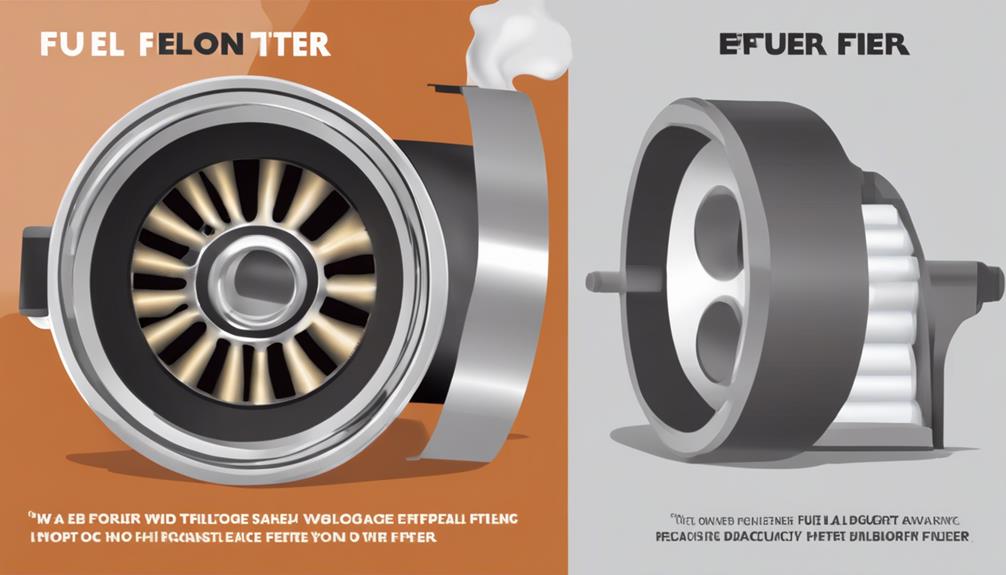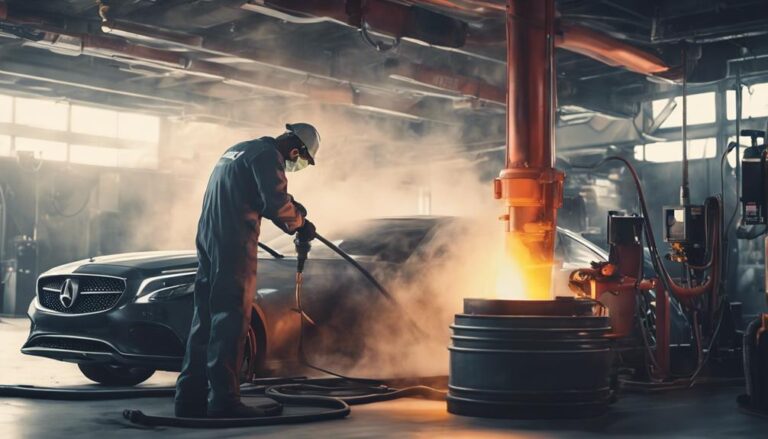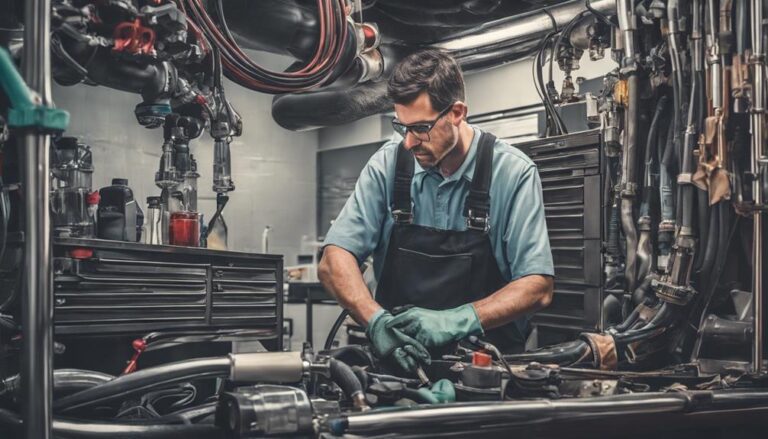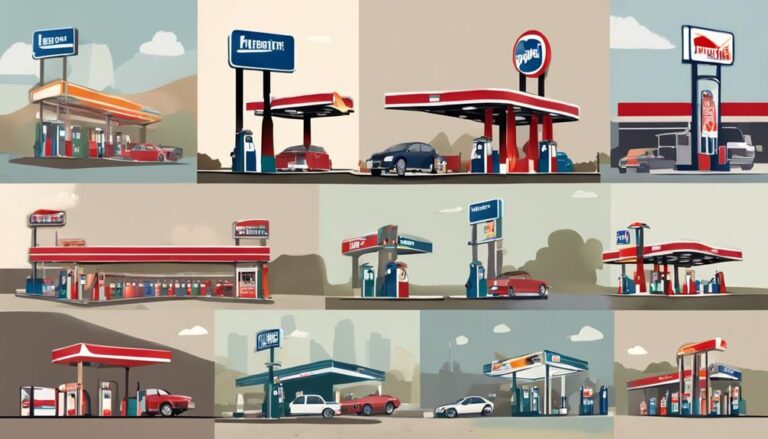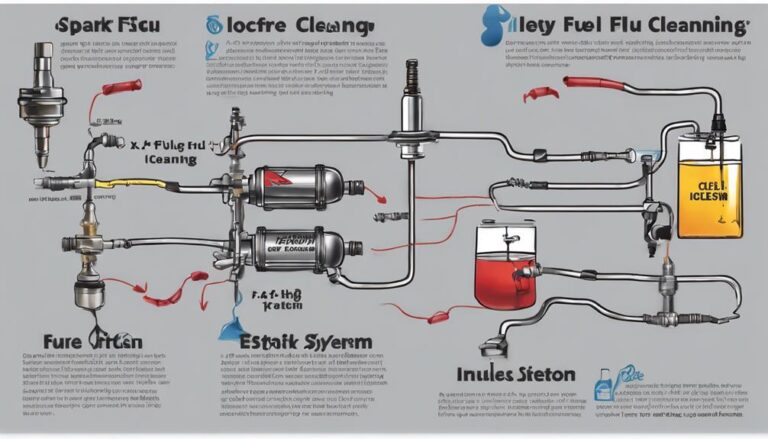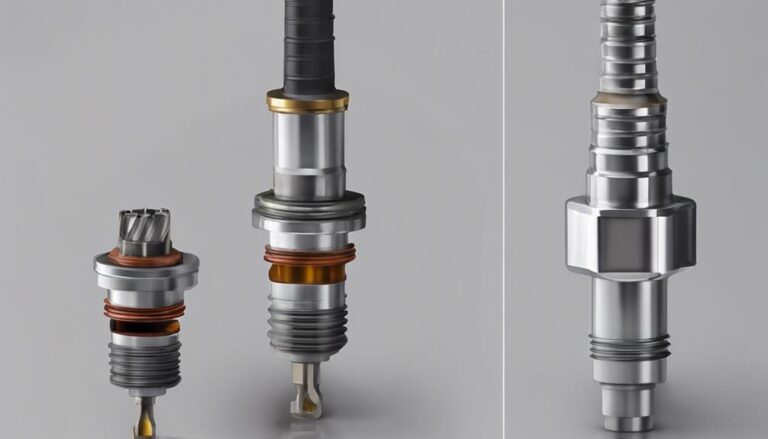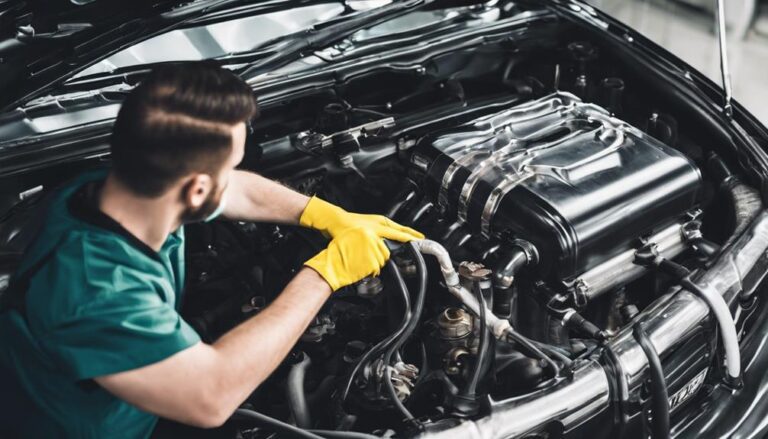Why Should You Replace Your Fuel Filter?
Did you know that your fuel filter plays an essential role in ensuring your engine runs smoothly? It's a small but mighty component that often goes unnoticed until problems arise.
When was the last time you had yours checked? Ignoring this simple maintenance task could lead to bigger issues down the road.
Stay tuned to discover the key reasons why replacing your fuel filter is essential for your vehicle's performance and longevity.
Key Takeaways
- Ensure top engine performance and prevent damage with regular fuel filter replacements.
- Replace clogged filters to maintain fuel flow, preventing decreased performance.
- Enjoy increased efficiency and engine longevity by adhering to recommended replacement intervals.
- Safeguard against engine issues caused by debris buildup with timely filter changes.
Importance of Fuel Filter Replacement
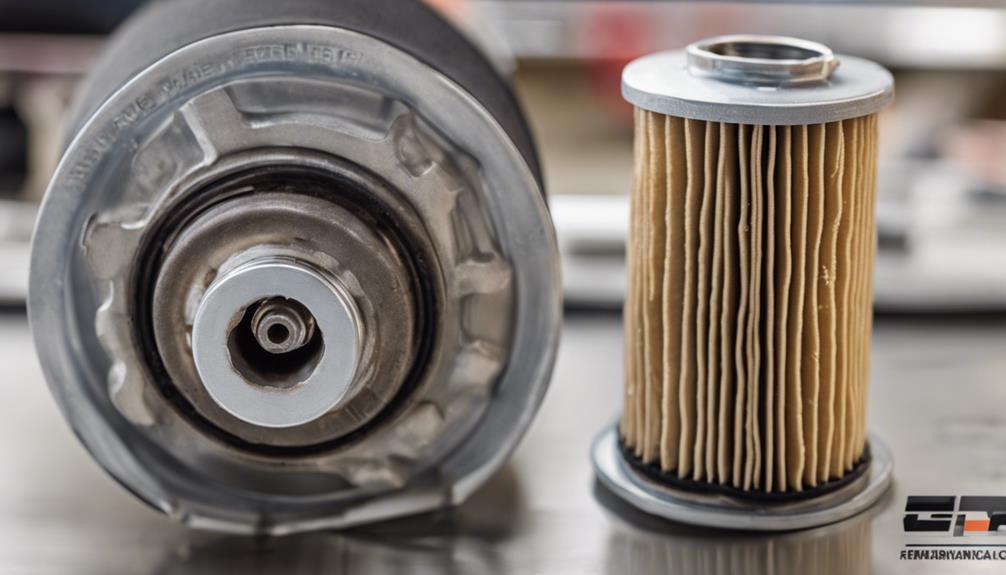
To guarantee top engine performance and prevent potential damage, regular replacement of your fuel filter is essential. Your fuel filter plays a critical role in ensuring that only clean fuel reaches your engine.
Over time, the filter can become clogged with dirt, debris, and other contaminants. This buildup can restrict the flow of fuel to your engine, leading to decreased performance and efficiency.
Signs Your Fuel Filter Needs Replacement
If your vehicle is showing signs of decreased engine performance or rough idling, it may be time to check your fuel filter for potential replacement. Here are some warning signs that indicate your fuel filter needs attention:
- Engine Misfires: A clogged fuel filter can lead to engine misfires as it restricts the flow of fuel to the engine cylinders.
- Difficulty Starting: If you're experiencing difficulty starting your vehicle, especially after it has been sitting for a while, a dirty fuel filter could be the culprit.
- Loss of Power: A decrease in engine power, particularly when accelerating, may indicate a fuel filter problem that's affecting fuel delivery.
- Stalling: If your vehicle stalls frequently, especially at low speeds or when idling, it could be due to a fuel filter that's no longer functioning efficiently.
Regularly checking and replacing your fuel filter as part of your maintenance tips can help prevent these issues and keep your engine running smoothly.
Benefits of Regular Fuel Filter Changes
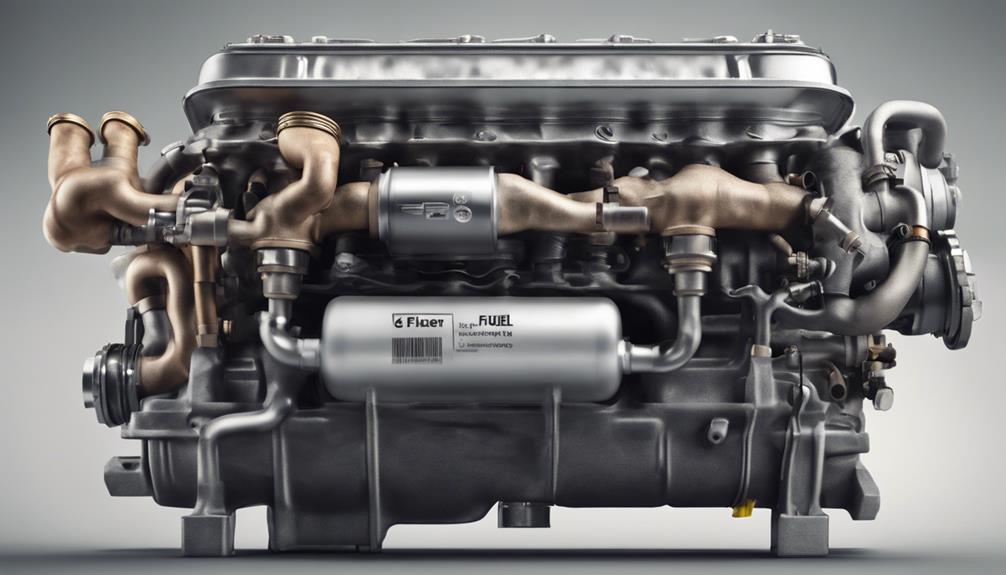
Regularly changing your fuel filter offers substantial benefits for maintaining the efficiency and longevity of your vehicle's engine. By ensuring that your fuel filter is clean and functioning properly, you can experience increased performance and improved efficiency in your vehicle. A clean fuel filter allows for best fuel flow to the engine, preventing any contaminants or debris from reaching critical engine components. This leads to improved fuel combustion, which in turn enhances your vehicle's overall performance.
Additionally, replacing your fuel filter at recommended intervals helps to safeguard against potential damage to your engine caused by clogs or debris. A clogged fuel filter can restrict fuel flow, leading to decreased fuel efficiency and engine performance. By staying proactive with regular fuel filter changes, you can maintain a healthy fuel system that supports your engine's operation. Ultimately, the simple act of changing your fuel filter can contribute significantly to the longevity and efficiency of your vehicle's engine.
Factors Influencing Replacement Frequency
Factors influencing the frequency of replacing your fuel filter depend on various elements such as your vehicle's age, driving conditions, and fuel quality. Understanding these factors can help you determine when it's time for a replacement. Here are some key points to take into account:
- Filter Efficiency: The efficiency of your fuel filter diminishes over time due to the accumulation of debris and contaminants. This reduction in efficiency can lead to decreased fuel flow and potential engine issues.
- Fuel Quality: Poor quality fuel containing impurities can clog up your fuel filter faster, requiring more frequent replacements to sustain peak engine performance.
- Driving Conditions: If you frequently drive in dusty or dirty environments, your fuel filter may get clogged quicker, necessitating more frequent changes.
- Vehicle's Age: Older vehicles tend to have more sediment buildup in the fuel tank, increasing the likelihood of debris reaching the fuel filter. Regularly replacing the filter can help prevent this buildup from causing problems.
Recommended Fuel Filter Replacement Intervals
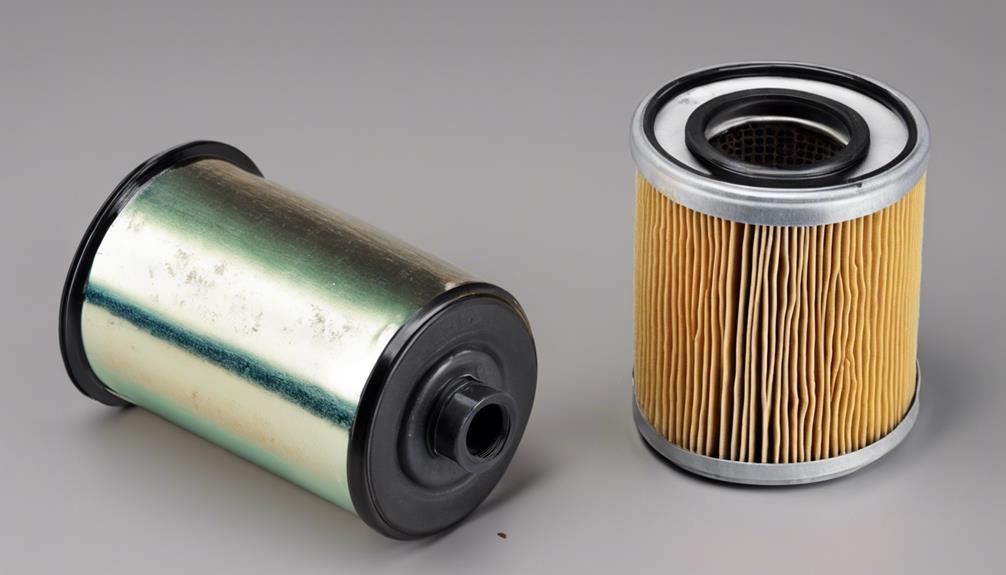
To maintain peak engine performance, adhere to specific recommended intervals for replacing your fuel filter. Regular maintenance of your fuel filter is essential for ensuring that your engine runs smoothly and efficiently. By following the manufacturer's guidelines for replacement, you can avoid potential issues such as reduced fuel efficiency, engine misfires, and overall decreased performance.
Here are some maintenance tips to help you determine when to replace your fuel filter:
| Vehicle Type | Recommended Interval (Miles) | Recommended Interval (Months) |
|---|---|---|
| Compact Cars | 30,000 miles | Every 3 years |
| SUVs | 40,000 miles | Every 4 years |
| Trucks | 50,000 miles | Every 5 years |
Frequently Asked Questions
Can a Clogged Fuel Filter Cause Damage to Other Parts of the Engine?
A clogged fuel filter can damage your engine by reducing fuel efficiency and engine performance. Neglecting filter replacement may lead to higher maintenance costs and shortened engine longevity. It's important to address this issue promptly.
How Does the Quality of Fuel Affect the Lifespan of a Fuel Filter?
To maintain fuel efficiency and prevent fuel contamination, guarantee the quality of fuel used. High-quality fuel can extend the lifespan of your fuel filter by reducing the likelihood of clogs and other issues. Regularly replacing the fuel filter is also essential.
Is It Necessary to Replace the Fuel Filter if I Use Premium Fuel?
If you use premium fuel, it's still necessary to replace your fuel filter as part of routine maintenance. Premium fuel benefits your engine, but the filter's job is to catch contaminants, ensuring peak performance.
Are There Any DIY Methods to Clean a Fuel Filter Instead of Replacing It?
To maintain optimal fuel system performance, consider maintenance tips like homemade solutions to clean a fuel filter. While DIY methods may seem cost-effective, replacing the filter is essential for ensuring efficiency and preventing potential engine issues.
Can a Fuel Filter Be Cleaned and Reused Instead of Replaced?
When it comes to cleaning a fuel filter, it's important to understand the process and its effectiveness. While some can be cleaned, reusability varies. However, replacing it guarantees best performance and prevents potential issues.
Conclusion
To summarize, replacing your fuel filter is essential for maintaining the performance and longevity of your vehicle.
Did you know that a clogged fuel filter can reduce fuel efficiency by up to 20%?
By regularly changing your fuel filter, you can improve fuel economy, prevent engine damage, and guarantee smooth operation of your car.
Don't overlook this simple maintenance task that can have a significant impact on your vehicle's overall performance.

